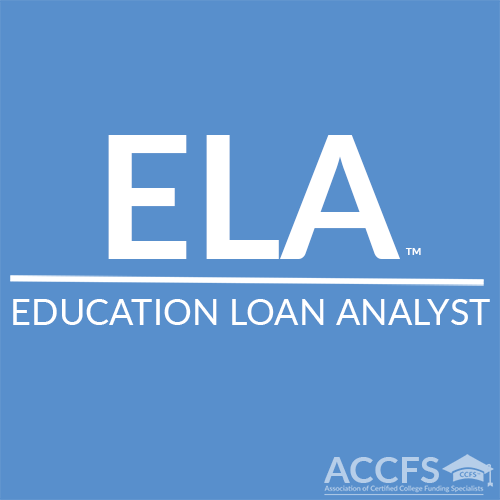Section 1
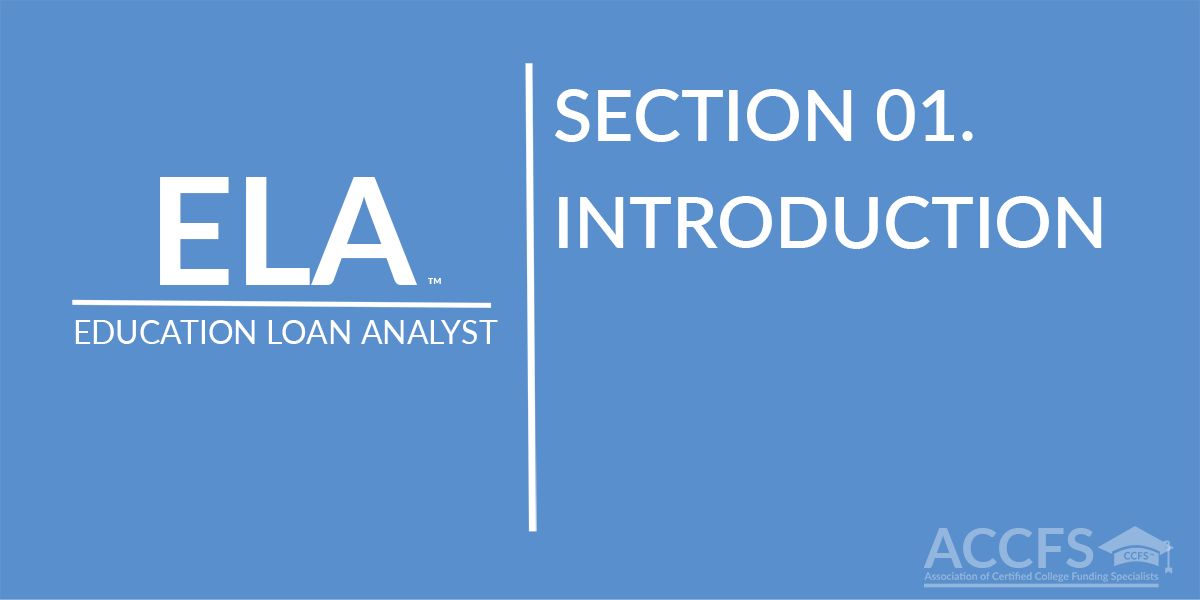
Introduction
This course covers all education loans and alternatives; the various rules and regulations regarding repayment plans, forgiveness, forbearance, cancellation; and other strategies to help your client families remove the burden of education debt.
Section 2
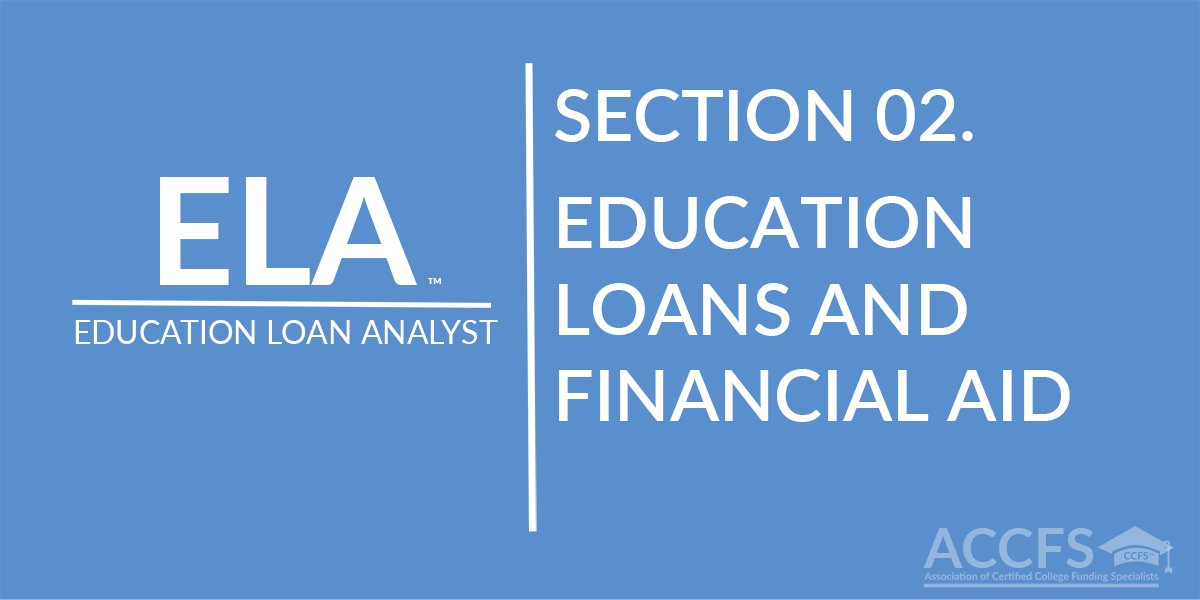
Education Loans and Financial Aid
This section covers education loans and the financial aid system, the various rules and regulations regarding master promissory notes, and student loan entrance and exit counseling.
Section 3
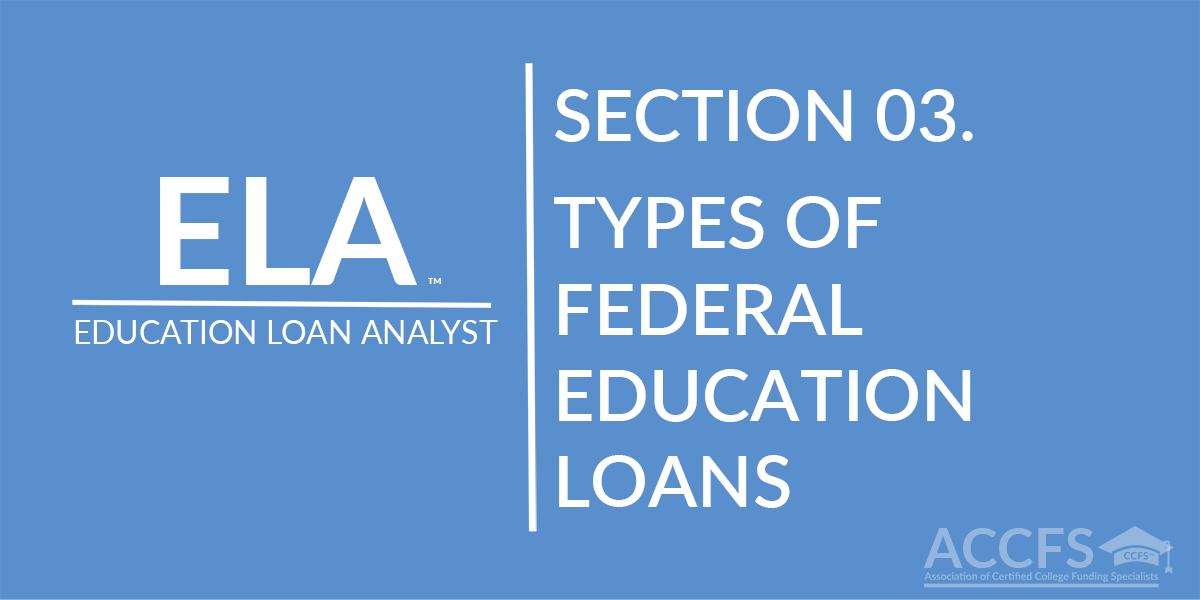
Types Of Federal Education Loans
There are many types of education loans, each having different interest rates, loan origination fees, loan borrowing limits, and other qualifications that every financial professional must understand in order to discuss with their clients.
Section 4
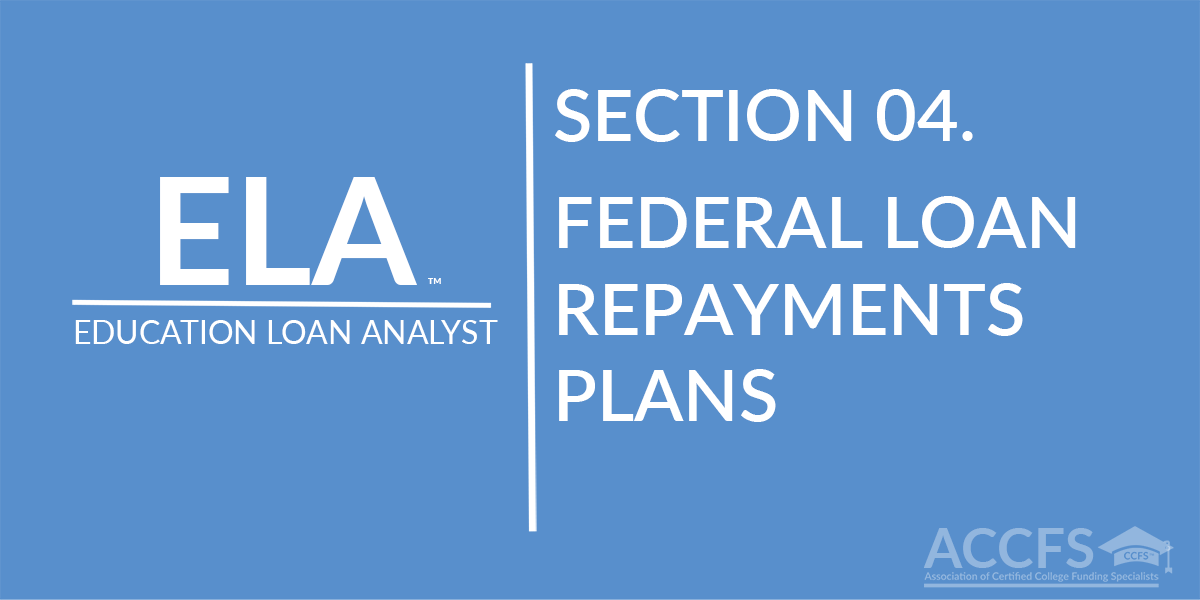
Federal Loan Repayments Plans
There are seven types of repayment plans for federal education loans, each having their own unique eligibility standards, monthly payment and time frame limits, and other features that every financial professional must understand in order to discuss with
Section 5
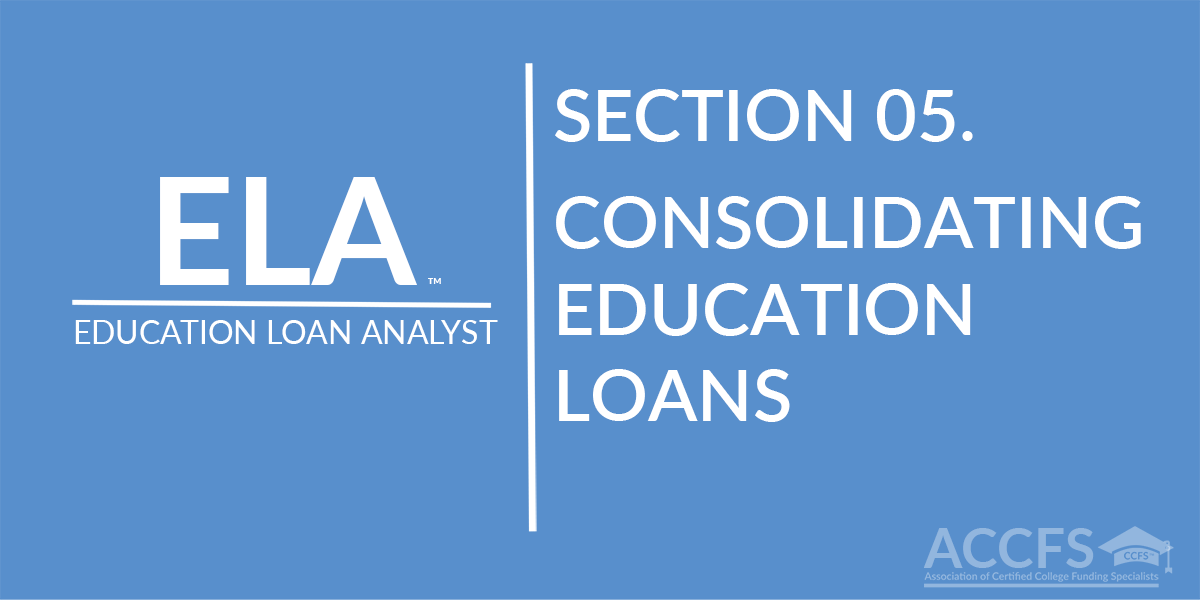
Consolidating Education Loans
Consolidation loans are designed to help both student, and parent borrowers simplify loan repayment by allowing the borrower to consolidate several types of federal student loans with various repayment schedules into one loan.
Section 6
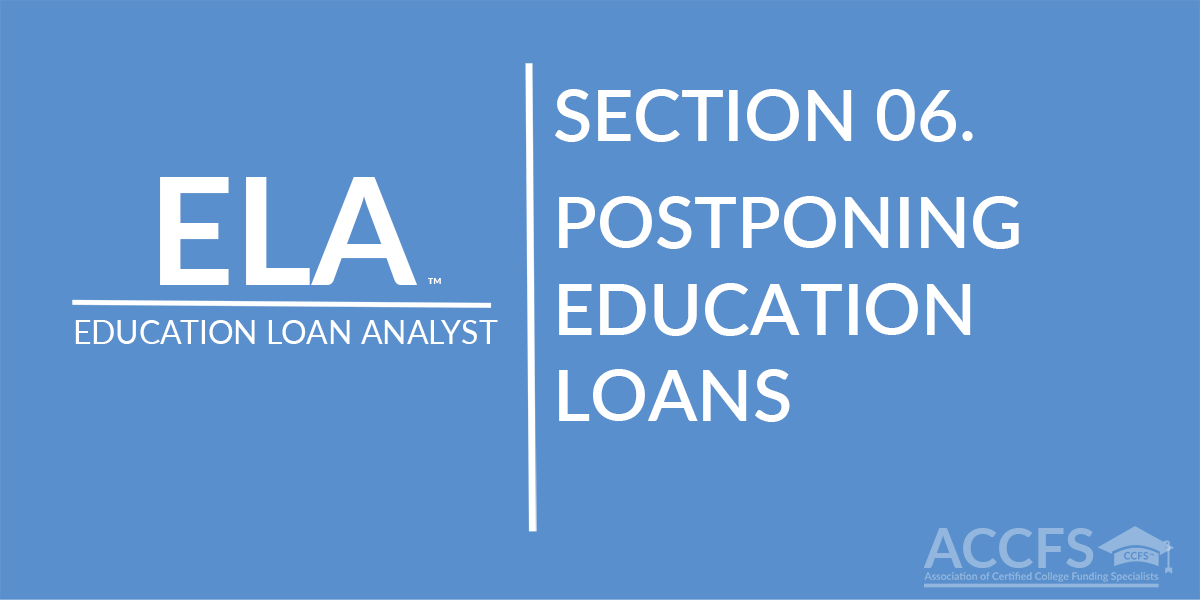
Postponing Education Loans
There are two ways to postpone students loans, one is deferment and the other is forbearance; both of which the repayment of the principal and interest of a student loan is temporarily delayed.
Section 7
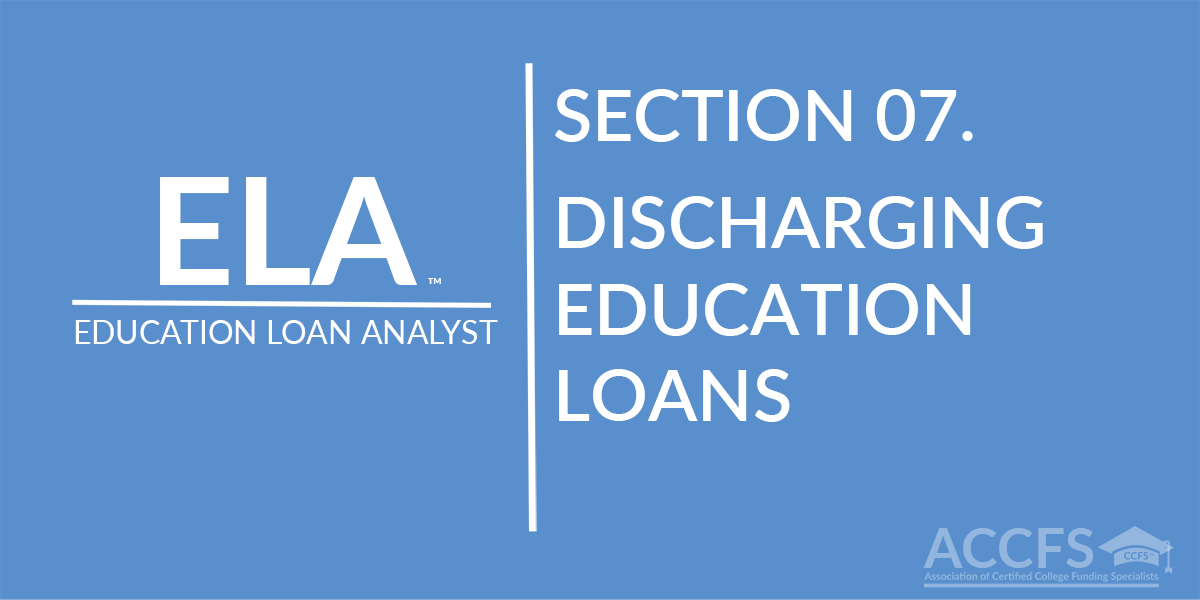
Discharging Education Loans
There are only three ways to discharge a student loan contract, one is loan forgiveness, the second is loan cancellation & discharge, and the third is loan bankruptcy. Each allows the student loan to be completely discharged, if the student is able to sat
Section 8
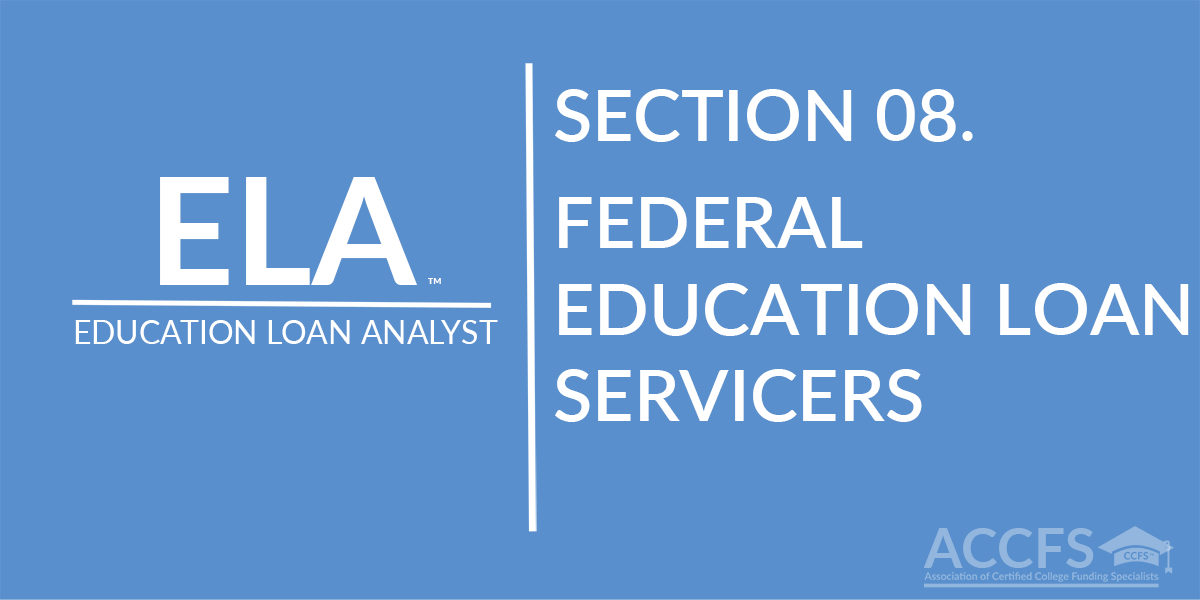
Federal Education Loan Servicers
This section gives the advisor the names and addresses of each Federal Education Loan Servicer. Their services are free. Any other company the presents your client and student with an opportunity to cut their student loan obligation and charges a fee, is
Section 9
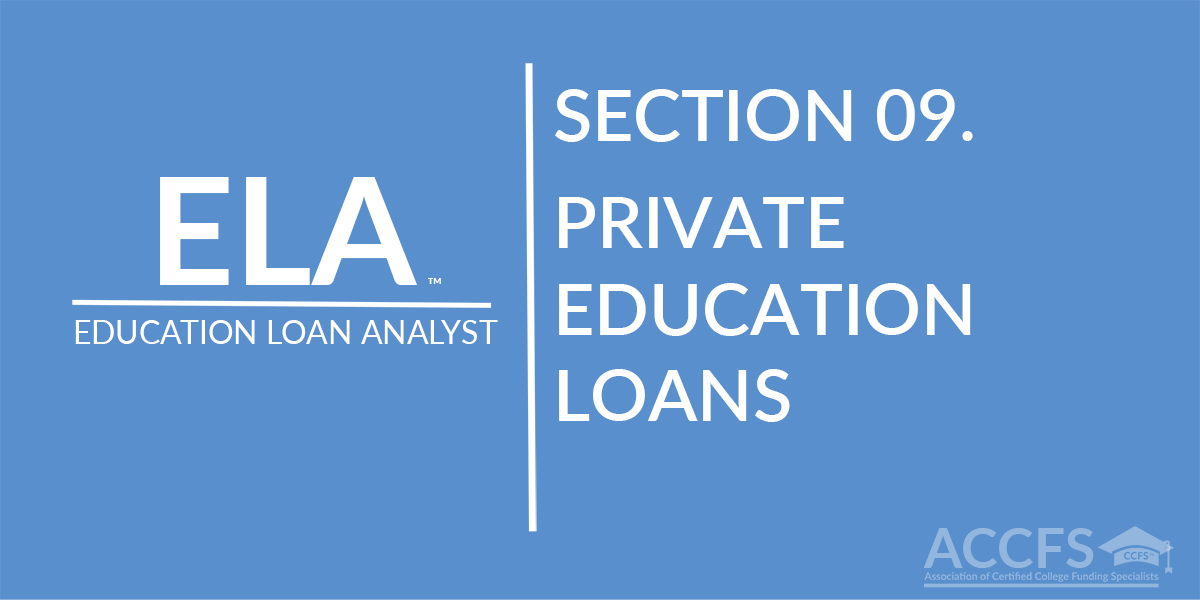
Private Education Loans
Private education loans are non-federal loans, made by a private lender such as a bank, credit union, state agency, or a college, and tend to cost more than loans offered by the federal government, but are less expensive than credit card debt.
Section 10
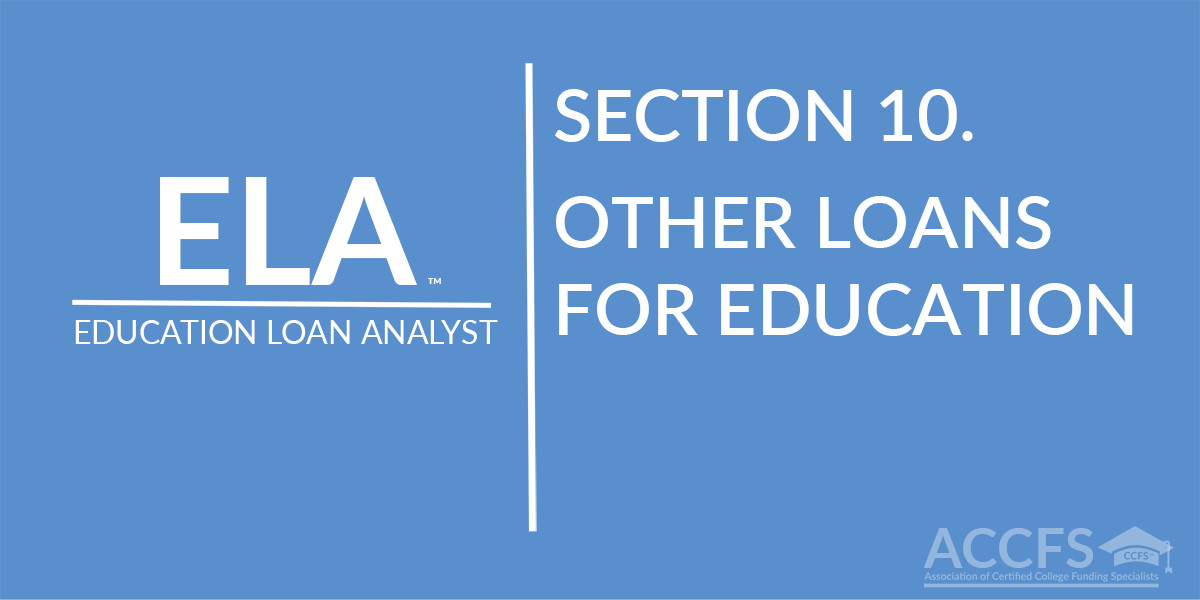
Other Loans For Education
If your client is considering using private education loans, they should first consider using a home equity loan, a retirement account loan, or even a life insurance loan to finance the student’s education.
Section 11
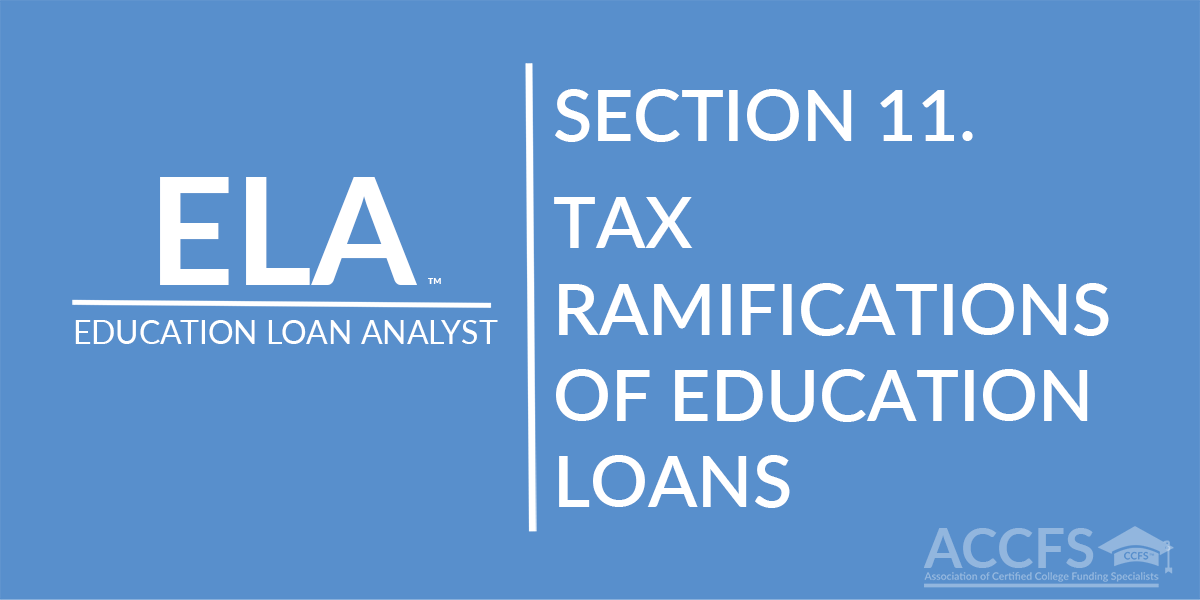
Tax Ramifications Of Education Loans
The Student Loan Interest Deduction is a tax benefit that allows a deduction for the interest paid on qualified student loans. The loans do not have to be federal interest subsidized loans.

Ron Them
Instructor Ron developed the CCFS (Certified College Funding Specialist) designation. For over 25 years, the nation's leading financial advisors, broker/dealers, and major media outlets have been using his research, funding strategies, training, and insight. Ron is highly regarded as an expert in the college funding field.
